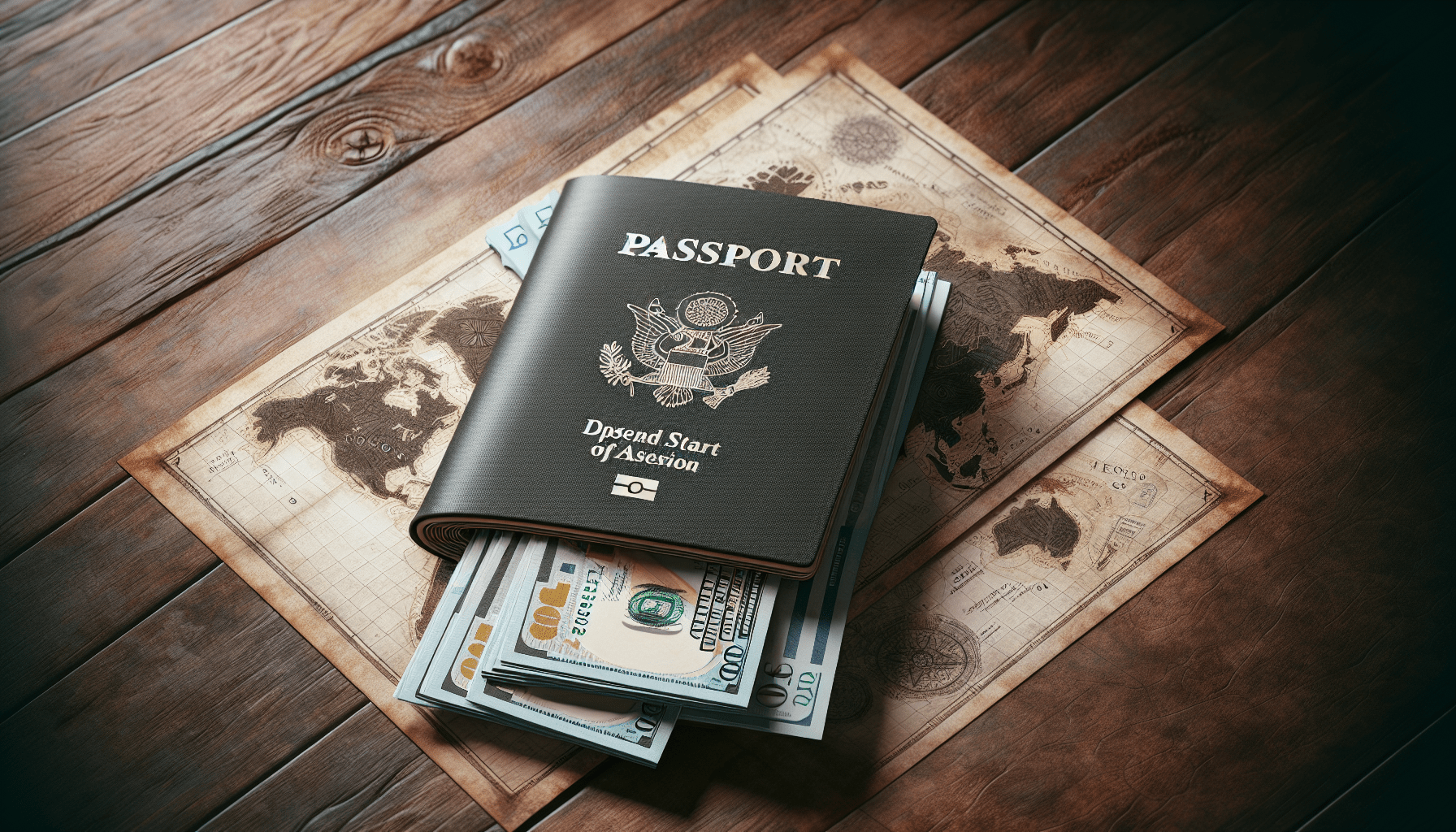Have you ever found yourself in a foreign country, fumbling through your wallet, wondering if you’ve lost track of your spending? Managing finances while traveling can be tricky, but it’s a crucial part of ensuring your trip goes smoothly. From exchange rates to budgeting for unexpected expenses, there are several aspects to consider. Let’s dig into some practical strategies for managing your money wisely while abroad.
Table of Contents
Introduction
Traveling abroad encompasses more than just packing your bags and booking flights. Financial management is a critical component of the travel experience, impacting everything from your daily expenditures to your overall trip satisfaction. In this article, we’ll explore how to handle your finances effectively while abroad, covering everything from planning and budgeting to the nuances of foreign exchange and emergency funds.
Historical Context
Travel finance has evolved significantly over the past few decades. In the past, travelers relied heavily on travelers’ checks and cash. With the advent of digital banking, the introduction of credit and debit cards made transactions overseas more convenient and secure. Mobile banking and various financial apps have further revolutionized the way travelers handle money. Understanding this historical transition helps to appreciate the advantages modern travelers have at their disposal.

This image is property of pixabay.com.
Current Trends
The rapid progression toward a cashless society has made managing travel finances more flexible and dynamic. Digital wallets like Apple Pay, Google Wallet, and an array of mobile banking applications have simplified the process of managing expenditures abroad. Furthermore, the rise of fintech companies has introduced services that offer travel-friendly financial products such as multicurrency bank accounts and low-fee international transactions. This shift has equipped travelers with tools to manage funds efficiently and with less hassle.
Key Concepts and Definitions
Understanding the basic terms associated with travel finance is essential. Here are some key definitions:
- Exchange Rate: The value of one currency for the purpose of conversion to another. Always check the current rate as it fluctuates regularly.
- Foreign Transaction Fee: A fee charged by your bank or card issuer for transactions made in a foreign currency.
- Dynamic Currency Conversion (DCC): A service that allows overseas merchants to convert charges into your home currency at the point of sale; this usually includes additional fees.

This image is property of pixabay.com.
Planning and Budgeting
Setting a Realistic Budget
creating a travel budget is the foundational step in managing your finances. Factor in all possible expenses:
- Accommodation: Research costs for hotels, hostels, or alternative accommodations like Airbnb.
- Transportation: Include flights, local transport, and potential car rentals.
- Food: Allocate daily funds for meals, and be sure to account for dining out and snacks.
- Activities: Budget for tours, entrance fees, and any recreational activities.
- Miscellaneous: Leave room for unforeseen expenses such as souvenirs, tips, and emergencies.
Researching Costs
Before you travel, it’s crucial to have an understanding of the cost of living in your destination. Websites like Numbeo provide a comparison of prices for groceries, dining, and entertainment across different cities worldwide. This helps in crafting a more accurate budget.
Managing Currency Exchange
Currency Exchange Options
You have several options for currency exchange:
- Bank Exchange Services: Typically offer better rates but might include fees.
- Currency Exchange Kiosks: Found in airports and tourist areas but often come with higher fees.
- ATM Withdrawals: Convenient but be wary of foreign withdrawal and currency conversion fees.
- Online Services: Platforms like Revolut, TransferWise, and others often offer competitive rates with fewer fees.
| Option | Pros | Cons |
|---|---|---|
| Bank Exchange Services | Secure, reliable rates | May charge higher fees |
| Currency Exchange Kiosks | Convenient, widely available | Poor exchange rates, high fees |
| ATM Withdrawals | Easy access to local currency | Foreign withdrawal and conversion fees |
| Online Services | Competitive rates, conversion transparency | Requires prior setup |

This image is property of pixabay.com.
Keeping Track of Expenses
Financial Apps
In the age of smartphones, managing expenses has never been easier. Consider using these financial apps:
- Mint: Tracks your spending and categorizes expenses.
- Expensify: Great for keeping receipts and tracking travel expenses.
- Trail Wallet: Designed specifically for travelers to track daily expenses.
Regular Check-Ins
Make it a habit to review your expenditures daily. This helps prevent overspending and keeps your budget on track. Consider setting alerts on your bank account for large transactions or low balances.
Saving on Fees and Charges
Choosing the Right Bank Account and Card
Selecting the right bank account and card is crucial. Look for accounts with minimal international fees and credit cards that offer:
- No Foreign Transaction Fees: Cards like the Chase Sapphire Preferred or Capital One Venture Rewards.
- Travel Rewards: Points or miles on purchases that can be used for flights, hotels, and more.
- Good Exchange Rates: Cards that offer competitive currency conversion rates without a markup.
Avoiding Dynamic Currency Conversion
Dynamic Currency Conversion might seem convenient since it shows charges in your home currency, but it’s often more expensive due to hidden fees. Always opt to be charged in the local currency to avoid these extra costs.

Handling Emergencies
Emergency Funds
Always have an emergency fund that’s easily accessible. Consider:
- Online Savings Account: Linked to your checking account for easy transfer.
- Extra Cash: A small amount stored separately from your main wallet.
- Backup Credit Card: In case your primary card is lost or stolen.
Contacting Your Bank
Before you leave, notify your bank of your travel plans to avoid any account freezes due to suspected fraud. Also, know how to reach them easily if an issue arises.
Cultural and Ethical Considerations
Tipping Practices
Understanding local tipping practices can prevent misunderstandings and help you budget appropriately. For instance, in the U.S., tipping is customary, whereas in Japan it can be seen as rude.
Supporting Local Businesses
Whenever possible, support local businesses. Not only does this enrich your travel experience, but it often results in more authentic and cost-effective experiences.

Comparing Different Perspectives
Cash vs. Card
There are differing opinions on whether it’s better to rely on cash or card while traveling:
- Cash:
- Pros: Widely accepted, helps with budgeting.
- Cons: Risk of theft, not always convenient for large transactions.
- Card:
- Pros: Secure, easy to track expenses, travel rewards.
- Cons: Foreign transaction fees, might not be accepted everywhere.
Financial Products
There are various financial products targeted at travelers, each with their pros and cons:
| Product Type | Pros | Cons |
|---|---|---|
| Travel Credit Cards | Rewards, no foreign transaction fees | High-interest rates if not paid off monthly |
| Prepaid Travel Cards | Preloaded with currency, fixed rate | Loading fees, limited acceptance |
| Multi-currency Accounts | Hold multiple currencies in one account | May have monthly fees |
Impact Assessment
The decision between using cash or card often depends on the destination and personal preferences. For example, highly developed urban areas are often more card-friendly, whereas rural or less developed regions might rely more heavily on cash. Selecting the right financial product impacts your overall travel experience by reducing fees, enhancing security, and possibly providing additional benefits like travel insurance.
Future Directions and Implications
Predicted Trends
With the rapid advancement of technology, the way we manage travel finances is expected to evolve:
- Blockchain and Cryptocurrencies: Increasing acceptance of cryptocurrencies as a form of payment.
- AI-Based Expense Management: Intelligent systems that analyze spending patterns and offer personalized saving tips.
- Enhanced Security Measures: Improved biometrics and fraud detection to secure financial transactions.
Implications for Travelers
These technological innovations could make financial management more seamless and secure, reducing the stress associated with handling money while traveling. For instance, blockchain technology could lower or eliminate currency conversion fees, making international transactions cheaper and more efficient. The integration of AI could provide personalized financial guidance, helping travelers make informed decisions on the go.
Conclusion
Traveling abroad offers a wealth of experiences, and carefully managing your finances ensures that these experiences are positive and stress-free. From setting a realistic budget and understanding currency exchange to leveraging financial technology and preparing for emergencies, wise financial management is the cornerstone of successful travel.
What financial tips and tricks have you found helpful on your travels? Share your experiences and insights, and let’s continue the conversation about traveling smarter and more securely.
For more insights and tips on travel finance, be sure to check out our related articles and resources that can further guide your planning!
